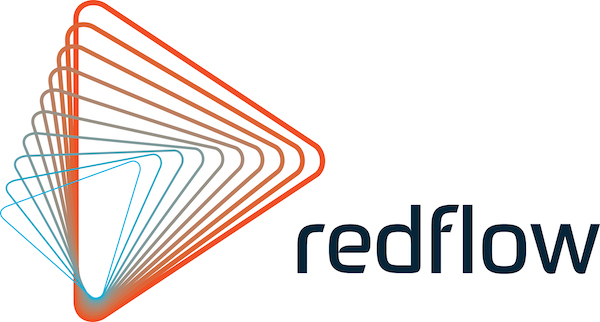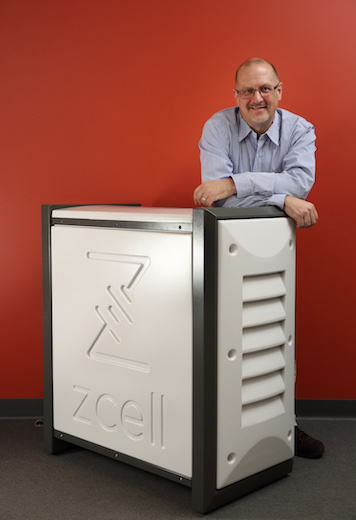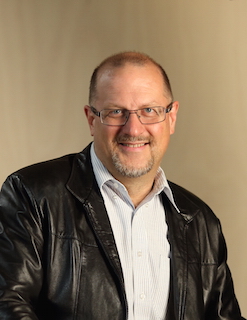Redflow

About Redflow
Redflow Limited, a publicly-listed Australian company (ASX: RFX), produces small 10kWh zinc-bromine flow batteries that tolerate daily hard work in harsh conditions. Redflow batteries are designed for high cycle-rate, long time-base stationary energy storage applications in the telecommunications, commercial & industrial and high-end residential sectors, and are scalable from a single battery installation through to grid-scale deployments. Redflow batteries are sold, installed and maintained by an international network of energy system integrators. Redflow’s smart, self-protecting batteries offer unique advantages including secure remote management, 100 per cent daily depth of discharge, tolerance of high ambient temperatures, a simple recycling path, no propensity for thermal runaway and sustained energy delivery throughout their operating life.
- Details
- In Redflow
- /

The Redflow board has appointed Executive Chairman Simon Hackett as acting Chief Executive Officer while fellow board member Richard Aird was named acting Chief Operating Officer.
Redflow announced these appointments after Stuart Smith resigned as CEO following his successful outsourcing of the entire battery manufacturing process to Flex. Mr Smith joined Redflow in 2012.
Redflow director Howard Stack, who was chairman for much of that time, said the company was grateful for Stuart Smith's leadership during the past four years. "Stuart has led Redflow during a period in which it transformed a promising technology into a world-class battery and outsourced manufacturing to Flex," he said.
"The company is now embarking on the next phase of its development, and with Stuart's departure we have appointed Simon and Richard as acting CEO and acting COO to oversee the delivery of ZCell batteries in Australia and to identify the leadership team to deliver Redflow batteries to the world."
- Details
- In Redflow
- /

Speaking recently at an industry conference, Mr. Hackett said the solar Feed-In Tariffs had already achieved their goal of kickstarting solar panel adoption in Australia. “Australia is among the world leaders in its per capita deployment of PV solar panels,” he said.
“From a public policy point of view, continuing to pay solar Feed-In Tariffs beyond this point represents a substantial forward liability that does not deliver improved public good outcomes. However, state governments are clearly sensitive to the political risk of simply cancelling these long-running tariff schemes, some of which hold liabilities to as far as 2028.
“However Governments have an attractive way out of that problem, which serves both a public policy and industry development agenda while removing these long term liabilities from the public purse. This involves inviting consumers to voluntarily trade in the residual life of their FIT for funding to buy a home battery energy storage system. This would have the dual benefit of eliminating a long-term liability for governments while kickstarting a home energy storage industry in Australia.
- Details
- In Redflow
- /

The outdoor-rated enclosure, which measures around 1000mm long, 500 mm wide and 1150 mm high, holds Redflow’s unique 10 kilowatt hour (kWh) ZBM2 flow battery,
Designed to be easy for installers to deploy, one or more ZCell units are typically installed on the ground beside an outdoor wall and connected to appropriate battery inverter/charger equipment.
Redflow Executive Chairman Simon Hackett, who will speak at an opening session of the Australian Energy Storage Conference, said the ZCell enclosure was designed and is being manufactured in Australia. “This is the first time we have shown our ZCell enclosure publicly,” he said.
More News...
- Redflow simplifies batteries with new management system (30 May 2016)
- Redflow launches ZCell home energy storage system (30 March 2016)
- Tech veteran Patrick Tapper joins Redflow board (24 March 2016)
- Redflow unveils battery lab in Adelaide (08 March 2016)
- Redflow ready to roll out residential batteries by mid-year (11 February 2016)
- Redflow powers up for battery battleground (18 November 2015)
- Redflow to miners: Store energy to cut costs (11 November 2015)
- Redflow extends reach to now include home and SME market (26 August 2015)
- SNS FiRe conference names Redflow a 2015 FiReStarter company (04 June 2015)
- Redflow welcomes Tesla to advanced energy storage sector (11 May 2015)
Off the Cuff

Simon Hackett speaks about Formula E racing on ABC Radio Adelaide
Australian renewable energy investor Simon Hackett last week spoke to Radio ABC Adelaide's Afternoons host Sonya Feldhoff about the benefits for replacing the cancelled Adelaide 500 motor race with a...
Read more
Seven simple steps for mental health in time of coronavirus
After the summer bushfires, the coronavirus pandemic and associated economic shutdown, “unprecedented” must be a standout favourite for Macquarie Dictionary’s Word of the Year for 2020. For the first time...
Read more
John Harris talks (a bit) about International Albinism Awareness Day on ABC Radio
John Harris, who has the honorary role of PR guy for the Albinism Fellowship of Australia, was interviewed by Peter Goers on the Evenings show of ABC Radio Adelaide on...
Read more
Start-ups are key to the future of everything
Nigel Lake, Executive Chair of global business advisory firm Pottinger, will tell this week's Myriad start-ups festival in Brisbane, running May 16-19, that Australia needs start-ups to protect its prosperity. Pottinger...
Read moreContact
Impress Media Australia
P: +61 8 8431 4000
E: john@impress.com.au
W: www.impress.com.au
Street:
Impress Media Australia
313 Portrush Road,
Norwood SA 5067
Click here for our location
Postal:
Impress Media Australia
Box 95, Kensington Park
South Australia 5068
